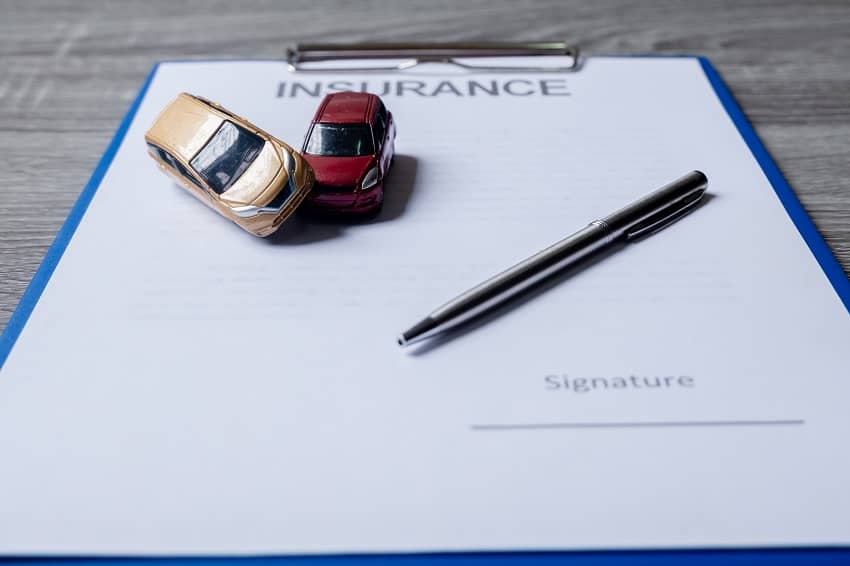Full coverage car insurance provides the highest level of protection available for your vehicle. When it comes to protecting your car, full coverage car insurance is the most comprehensive option.
It not only covers liability for damages or injuries you may cause to others, but also includes collision and comprehensive coverage for damages to your own vehicle. Collision coverage pays for repairs or replacement if your car is damaged in an accident, while comprehensive coverage covers non-collision incidents such as theft, vandalism, or natural disasters.
Additionally, full coverage may also offer extras like rental car reimbursement and roadside assistance. While it may be more expensive than liability-only coverage, full coverage can provide peace of mind and comprehensive protection for your car.
Table of Contents
What Is Comprehensive Car Insurance?
Car Insurance Full Coverage: Protect Your Investment With Comprehensive Protection
Car insurance is an essential part of owning a car. It protects you financially in case of an accident, theft, or any other unforeseen event. However, not all car insurance policies are the same. One of the most comprehensive car insurance coverage options is comprehensive car insurance.
Definition And Explanation Of Comprehensive Car Insurance
Comprehensive car insurance is a type of coverage that helps protect your car from damage or loss due to incidents that aren’t related to collisions. It provides protection against theft, fire, vandalism, and damage caused by natural disasters such as floods, hurricane, or hail.
Some of the areas where comprehensive car insurance provides coverage include:
- Theft or attempted theft
- Fire and explosion
- Natural disasters like floods, hurricanes, or hailstorms
- Falling objects like a tree branch or a rock
- Vandalism and malicious damage
- Collision with an animal like a deer or a livestock
While comprehensive car insurance is not a legal requirement, it is an excellent option for owners of expensive cars, or those who live in areas where theft, vandalism, or natural disasters are common.
Comparison To Other Types Of Car Insurance Coverage
Comprehensive car insurance is different from other types of car insurance such as liability insurance and collision insurance. Here’s how they compare:
- Liability insurance: This type of insurance covers any injuries or damages you may cause to other people and their property in case of an accident. It does not cover any damage to your car or injuries you suffer.
- Collision insurance: This covers any damages to your car that result from an accident, regardless of who is at fault. But it does not cover damages due to theft, natural disasters, or vandalism.
While liability and collision insurance are mandatory in most states, comprehensive car insurance is optional. However, it is always advisable to have comprehensive coverage to protect your car from all possible risks.
Role Of Comprehensive Insurance In Protecting Car Investments
Your car is one of your biggest investments, and protecting it is crucial. Comprehensive car insurance can help you keep your investment safe. Here’s how:
- It gives you peace of mind knowing that you are covered in case of any non-collision-related incidents.
- It covers you against theft and vandalism, which can cause significant financial losses.
- It helps you repair the damages caused by natural disasters that can be costly to fix.
- It can help you to repair or replace your car if it is damaged beyond repair.
Overall, comprehensive car insurance is an excellent option for anyone who wants to protect their car from all possible risks. It provides comprehensive coverage that ensures your investment is secure, giving you peace of mind while on the road.
Benefits Of Comprehensive Car Insurance
Car Insurance Full Coverage: Protect Your Investment With Comprehensive Protection
As a car owner, protecting your investment with full coverage car insurance is vital. While liability insurance coverage is mandatory in most states, it doesn’t protect your car or cover its damages in the event of a wreck. That’s where comprehensive car insurance comes in, which provides a wide range of protection for your car.
Coverage For Various Types Of Damage And Loss
Comprehensive car insurance coverage offers protection for various types of damage and loss. Here are some of the damages and losses usually covered under comprehensive car insurance:
- Damage caused by natural disasters, such as floods, earthquakes, tornadoes, hurricanes, and wildfires.
- Damage caused by vandalism, theft, or accidents with animals such as hitting a deer or a cow.
- Broken glass, including windshield damage for most car insurance policies.
- Damage caused by falling objects, such as trees or debris.
- Fire or explosion damage.
Protection Against Natural Disasters And Theft
Comprehensive coverage provides protection against natural disasters, theft, and vandalism. While it won’t cover a car’s mechanical failures, it can cover some of the expensive problems that occur after a natural disaster.
Comprehensive also helps protect against theft, which is a valid concern for many car owners. In the event of your car stolen, you may be eligible for compensation from your insurance company.
Limits And Exclusions To Consider When Purchasing Coverage
It’s important to keep in mind that comprehensive coverage does have limits and exclusions to consider when choosing your policy. For example, your insurance company may only pay the actual cash value of the car rather than what you owe on it, making it less valuable if your vehicle is totaled in an accident.
Another thing to keep in mind is that car insurance companies will include a deductible with your policy. A deductible is the amount you’ll have to cover before the insurance company starts paying for any damages.
Coverage Requirements For Leased Or Financed Cars
If you’re financing or leasing a car, your lender may require you to have comprehensive insurance coverage. In addition, if you still owe money on your car loan, your lender will usually require you to have collision and comprehensive insurance to protect their investment in your car.
Protect Your Investment With Comprehensive Car Insurance
Comprehensive car insurance coverage is essential to protect your investment and cover various types of damages and losses. It’s important to understand the limits and exclusions of your policy and requirements for leased or financed cars. With comprehensive coverage, you can have peace of mind, knowing that you’re protected in case of any mishap.
Factors Affecting Comprehensive Car Insurance Premiums
Car Insurance Full Coverage: Protect Your Investment With Comprehensive Protection
Car insurance is mandatory in most states, and there are different types of coverages. One of the most comprehensive is a full coverage policy, which includes liability, collision, and comprehensive protection. This coverage can help protect your investment, but it can also come with a higher premium.
Here are some of the factors that affect comprehensive car insurance premiums.
Age, Driving History, And Other Personal Factors
Car insurance companies take several personal factors into account when determining premiums. These factors include age, gender, and driving history. Drivers under the age of 25 generally pay more for car insurance than older drivers because they are considered higher risk due to their lack of driving experience.
Individuals with a history of accidents, traffic violations, and drunk driving are also considered higher risk, resulting in higher premiums.
Type Of Car And Its Value
The type of car you drive is another important factor that determines your car insurance premium. Sports cars and luxury vehicles have higher premiums compared to economy cars because they are more expensive to repair or replace in case of an accident or theft.
The value of your car also plays a role in determining your premium. The higher the value, the higher the premium.
Deductibles And Other Insurance Policy Details
Deductibles also play an essential role in determining comprehensive car insurance premiums. A deductible is the amount you have to pay out of pocket before your insurance policy takes effect. A higher deductible will lower your premium, but it will also increase your out-of-pocket expenses in case of an accident.
Other policy details like coverage limits and optional add-ons such as roadside assistance or rental car reimbursement can also affect your premium.
Comparing Rates And Coverage Options
When shopping for comprehensive car insurance, it’s essential to compare rates and coverage options from different providers. Comparing rates can help you find the best coverage at the most affordable price. You should also read the policy documents carefully and compare the coverage options to make sure you’re getting the protection you need.
It’s also a good idea to check the insurance company’s reputation and customer service ratings.
Many factors affect comprehensive car insurance premiums, including personal factors, the type of car and its value, deductibles, and other policy details. It’s essential to compare rates and coverage options to find the best protection at an affordable price. Remember, the right coverage can help protect your investment and provide peace of mind on the road.
Understanding Exclusions And Additional Coverage Options
Car insurance provides protection for your vehicle, and more importantly, for you as a driver. A comprehensive policy should cover a wide range of scenarios, but there may be types of coverage that aren’t included. On top of this, you may want to consider additional coverage options to have more comprehensive protection.
In this post, we’ll discuss what you need to know about exclusions and additional coverage options when choosing a car insurance policy.
Types Of Coverage That May Not Be Included In A Standard Comprehensive Policy
A comprehensive policy is designed to cover a variety of scenarios, but there may be some types of coverage that are not included. These include:
- Personal injury protection (pip): This type of coverage pays for medical expenses and lost wages if you or your passengers are injured in an accident. Not all states require pip coverage.
- Uninsured/underinsured motorist coverage: This coverage protects you if you’re in an accident with someone who doesn’t have insurance, or doesn’t have enough coverage to pay for the damages.
- Rental car reimbursement: If your car is damaged in an accident, this coverage may pay for a rental car while it’s being repaired.
- Roadside assistance: This coverage provides assistance if your car breaks down or you have a flat tire.
Adding On Additional Coverage Options For More Comprehensive Protection
In addition to the coverage offered in a standard comprehensive car insurance policy, there are several other options you may want to consider to have more comprehensive protection. These include:
- Gap insurance: This coverage pays the difference between what you owe on your car and what it’s worth if it’s totaled in an accident.
- Collision coverage: This type of coverage pays for damage to your car in the event of a collision.
- Extended liability coverage: This coverage provides additional protection beyond the limits of your standard liability coverage.
- Towing and labor coverage: This coverage provides assistance if your car breaks down and needs to be towed.
Factors To Consider When Choosing Additional Coverage
When choosing additional coverage options for your car insurance policy, there are several factors to consider. These include:
- Cost: Determine how much each additional coverage option will cost and whether it fits within your budget.
- Type of car: Consider the type of car you drive and whether it requires specific types of coverage.
- Driving habits: Think about your driving habits and the likelihood of needing additional coverage.
- Location: Depending on where you live, you may need additional coverage options to protect against specific risks.
- Coverage limits: Look at the coverage limits for each type of coverage and decide whether they are adequate for your needs.
Choosing car insurance is an important decision. Understanding exclusions and additional coverage options can help you make an informed decision and protect both you and your vehicle on the road.
Final Thoughts
Car insurance is essential for protecting your investment in your vehicle. We have covered the significance of comprehensive coverage and how it works. Now, let’s recap the main points for clarity.
Recap Of Main Points Covered In The Article:
- Comprehensive insurance covers damage caused by events not related to accidents, such as theft, natural disasters, and vandalism.
- Full coverage car insurance is the combination of comprehensive, collision, and liability insurance.
- It is crucial to review insurance coverage regularly and make sure it meets your needs.
- Comprehensive coverage may not be cost-effective if your car’s value declines significantly.
Final Advice For Choosing Comprehensive Car Insurance:
Choosing car insurance can be overwhelming, but with comprehensive coverage, you can have peace of mind knowing that your investment is protected. Here is some final advice to help you make a wise decision on comprehensive car insurance:
- Compare different insurance providers and get quotes to find the best rates for comprehensive car insurance.
- Determine what additional coverage you need and understand all the benefits and exclusions of the policy.
- Research the insurance provider’s reputation and customer service.
Importance Of Protecting Car Investments With Comprehensive Coverage:
Your car is more than just a mode of transportation; it’s an investment that deserves protection. Comprehensive coverage helps safeguard your investment by providing coverage for a wide range of events that are beyond your control. Without comprehensive coverage, you may find yourself paying out-of-pocket for costly repairs or replacements.
Comprehensive coverage is an important component of full coverage car insurance. By following our final advice and taking the time to research and compare coverage options, you can make an informed decision to protect your investment. Remember, a little investment in comprehensive coverage can save you a lot in the long run.
Frequently Asked Questions For Car Insurance Full Coverage
What Does Full Coverage Car Insurance Cover?
Full coverage car insurance includes liability, collision, and comprehensive coverage. It provides the most extensive protection for your vehicle.
Is Full Coverage Car Insurance Worth It?
Depending on your vehicle, lifestyle, and budget, full coverage car insurance may be worth it. It provides ultimate protection for your car, but it can also come with a higher premium.
Does Full Coverage Insurance Cover Car Repairs?
Yes, full coverage insurance can cover car repairs if they are necessary due to an accident. However, coverage may vary depending on the specific policy.
How Much Does Full Coverage Car Insurance Cost?
The cost of full coverage car insurance varies depending on several factors, such as your driving record, vehicle, coverage limits, and location. On average, it can cost $129 per month.
Can I Lower My Full Coverage Car Insurance Premiums?
You can lower your full coverage car insurance premiums by increasing your deductible, bundling policies, and maintaining a good driving record. Shopping around for the best rates can also help save money.
Conclusion
When you’re on the road, accidents can happen anytime, anywhere. Having car insurance full coverage ensures that you are prepared for these unfortunate events. By opting for full coverage, you will not only be covered for the damages caused to your car in an accident but also for any injuries sustained by you or others involved in the accident.
In addition, your policy may also cover theft, damage from natural disasters, and vandalism. As a responsible driver, it is your duty to protect yourself and others on the road. Getting a full coverage car insurance policy is the best way to ensure your safety and peace of mind.
Make sure you do your research and choose a policy that fits your specific needs and budget. Don’t wait until it’s too late – get covered today.





